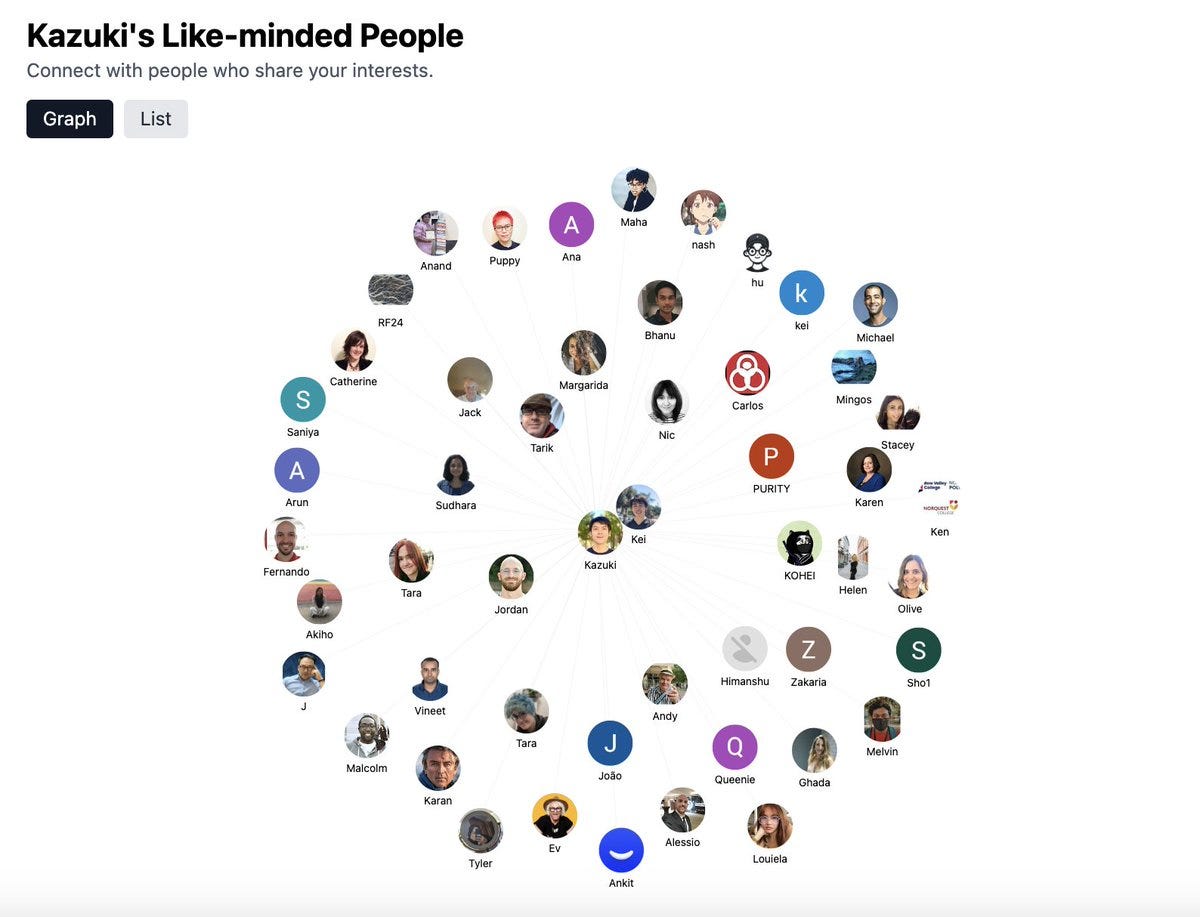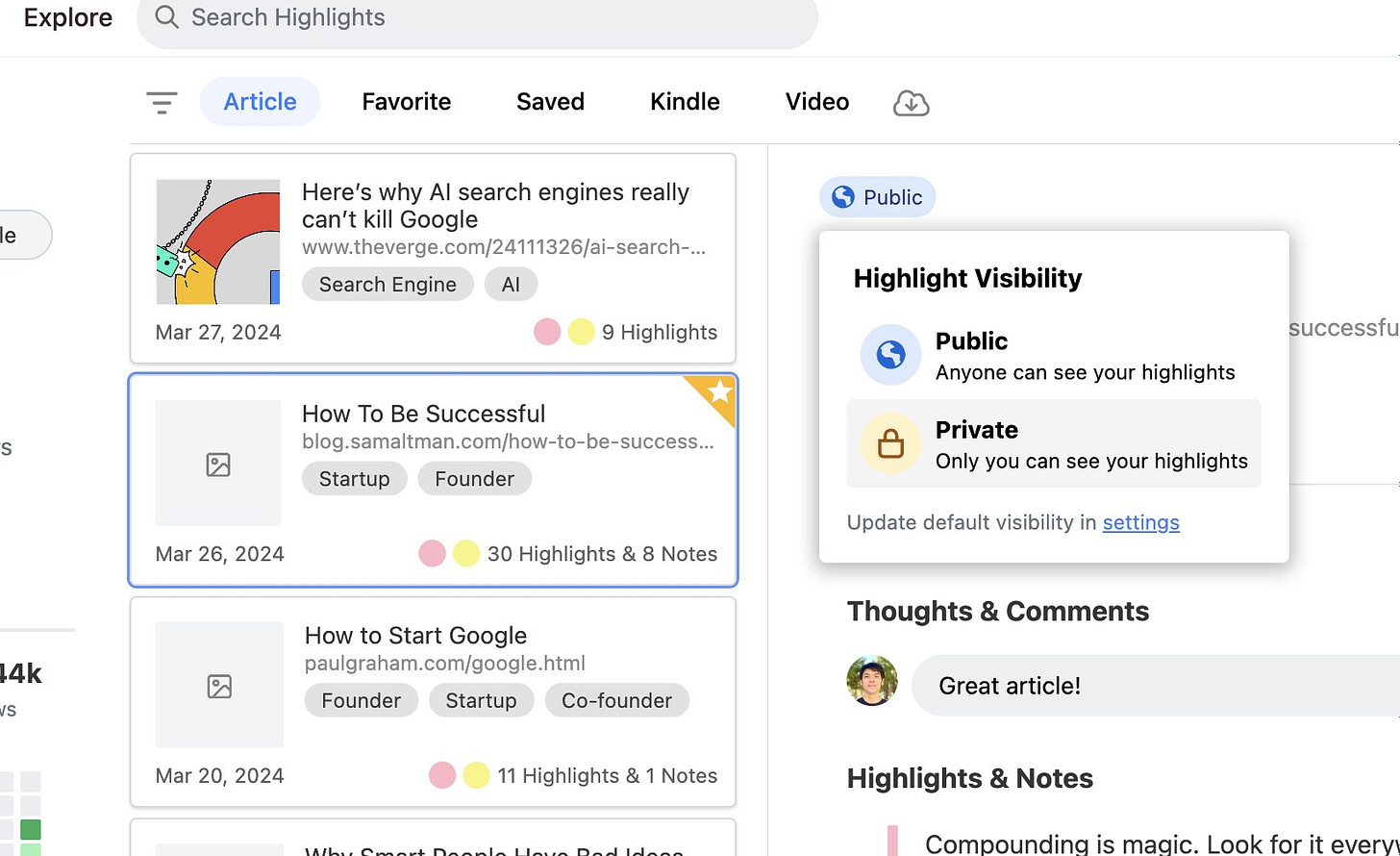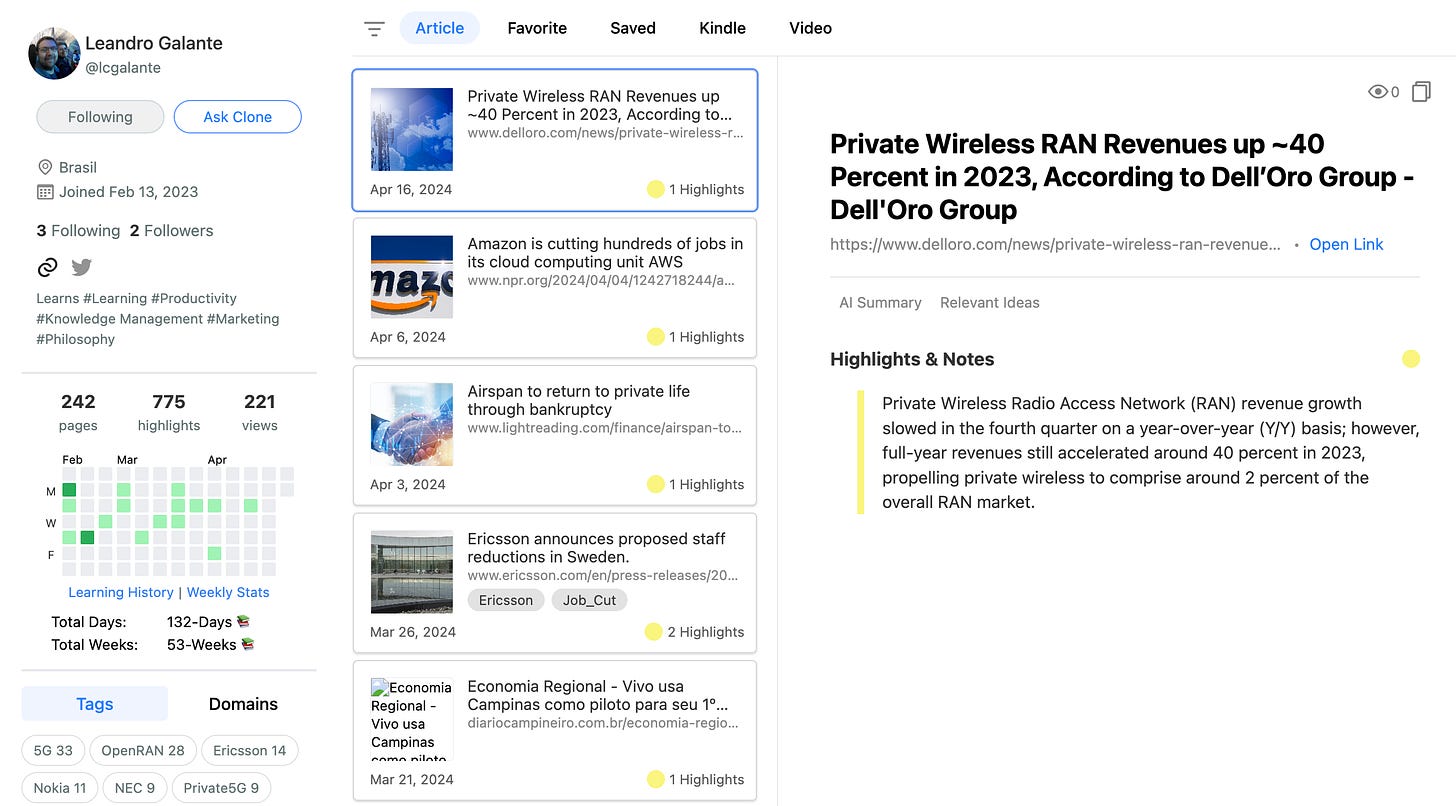April 29, 2024: How to be enough
“No one can have everything, so you have to try for what you want most.”
― Mae West
Hi friends,
How's everything going?
This is Kei and Kazuki, founders of Glasp 👋
We hand-picked 3 good articles for you to highlight this week. Hope they'll help you get new ideas and perspectives. (You can read this online!)
📚 3 Good Articles for You
How to be enough
by Allie Volpe (10 mins)
- Psychologist Maytal Eyal highlights an "epidemic of self-hatred" where individuals feel pressured by a culture obsessed with self-improvement, leading to excessive self-criticism and the adoption of rigorous routines and lifestyle changes that often don't address deeper feelings of inadequacy.
- The concept of the "hedonic treadmill" suggests that people naturally adapt to both positive and negative life changes, maintaining a baseline level of happiness regardless of achievements or acquisitions, which leads to a perpetual cycle of wanting more but not achieving lasting satisfaction.
- Effective strategies to counteract this cycle include setting meaningful personal growth goals, practicing gratitude, and reevaluating one's baseline for satisfaction, allowing for a healthier balance between appreciating what one has and aspiring for genuine improvements.
Share: Post your learning on X
Doing more, but learning less: The risks of AI in research
by Mike Cummings (5 mins)
- Narrowed Scientific Inquiry: AI could limit the scope of questions, experiments, and perspectives in research, leading to "illusions of understanding" where researchers believe they understand more than they do.
- AI's Role in Research: Describes four AI archetypes in research—Oracle, Surrogate, Quant, and Arbiter—each potentially replacing human judgment and reducing scientific diversity and methodological variety.
- Need for Diverse Perspectives: The paper calls for a discussion that includes insights from humanities and social sciences to recognize and mitigate AI's epistemic risks, stressing the importance of maintaining diverse perspectives in scientific research.
Share: Post your learning on X
How colours affect the way you think
by Mark Ellwood (11 mins)
- Behavioral Influence: Colors like pink and red are used strategically to influence behavior, such as calming inmates or encouraging help, though evidence of their effectiveness is mixed.
- Sensory Perception: Colors impact how we perceive tastes and perform tasks, with certain colors enhancing sweetness or influencing mental focus.
- Cultural Significance: Colors carry psychological weight, affecting our choices and assumptions, such as expectations of food taste or product softness based on color intensity.
Share: Post your learning on X
📣 Community
- 🟦 Customizing prompt for summary:
Did you know you can customize the prompt when summarizing an article or a YouTube video? For example, you can get a summary in 50 words instead of five bullet points. Please check this article on how to update it 👀 - 🟨 Review on the Chrome Web Store:
We appreciate you so much if you could give us a 5-star rating and give us a review on the Chrome Web Store. You can leave a rating and review here 🙏 - 🟩 Find your like-minded people:
We updated like-minded people's graphs recently! You can check who are the nearest neighbors with the same interests. Please check here to see how to see your like-minds 🤝

- 🟥 Private highlights:
We're excited to announce the release of the private highlight feature! Now, you can safely highlight articles, videos, and PDFs in your private space. To begin using this new feature, please refer to our tutorial.

👀 Featured Curator on Glasp
Leandro Galante
Leandro learns 5G, OpenRAN, Ericsson, and more! Let’s follow and learn together!

Please mention @Glasp and share your profile page on Twitter if you’d like to get featured!
❤️ Gratitude
We found some people who mentioned Glasp in their articles and blogs, and we appreciate all the kindness!
- Artificial Intelligence (AI) Research Guide on New York Institute of Technology
- Resources for Presentations / Training Sessions on Productive Fundraising
- AI Tools for Research on Temple University
- 20+ сервисов с искусственным интеллектом (20+ services with artificial intelligence) on All-In-One Person
- The Rise of ChatGPT: Must-Know AI Advancements on Rapidops
Thank you all for sharing and mentioning us on Twitter, LinkedIn, and/or in your blogs 🙂 We appreciate all of your support! Please feel free to ask us anything at any time! Also, feel free to join our Slack community ;)
Hope you enjoyed reading this newsletter!
See you next week ;)
Best,
Kei and Kazuki
--
Is Glasp helpful for you?
